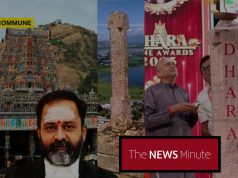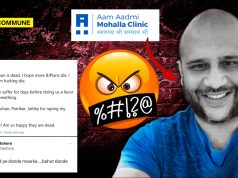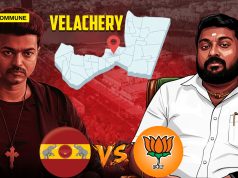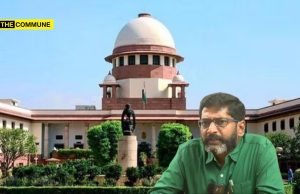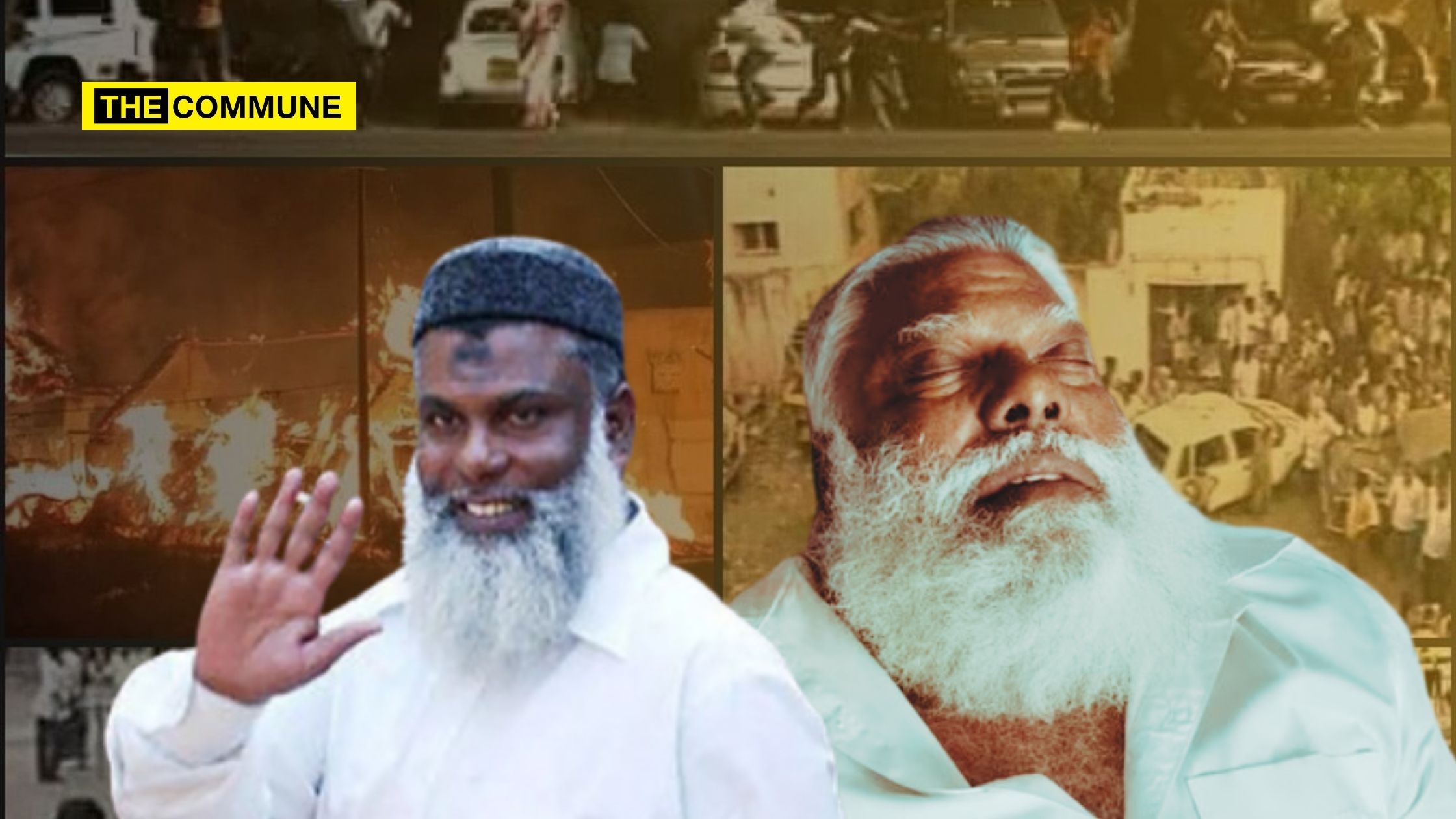
Islamist terrorist and founder of Al Ummah, SA Basha, a name synonymous with terrorism and fear in Tamil Nadu during the 1980s and 1990s, is finally dead. But for many like me, the scars he left behind remain vivid. Like many families in Tamil Nadu, my family too bears the brunt of his reign of terror. I write this not just to recount history but to pay tribute to every RSS and BJP karyakarta of those decades who, against insurmountable odds, stood firm for the cause of Hindutva.
A Personal Tragedy That Shaped My Resolve
My late grandfather, Thirukkovilur Sundaram, was a lean man weighing barely 50 kilograms, but his courage was immense. As Vice President of the BJP in Tamil Nadu, he stood tall against the tide of extremism. On June 11, 1983, after a public meeting in RS Puram, Coimbatore, his car was ambushed by Basha himself.
One by one, my grandfather and other BJP leaders, including Jana Krishnamurthy, TR Gopalan, and Narayan Rao, were pulled out and brutally attacked with machetes.
“Where’s Sundaram?”, Basha asked. He then pulled out my grandfather cut his body, hand, legs and thigh and ran away. He survived but spent six agonizing months in the hospital. He never fully recovered and lived with the aftermath of the attack until his passing in 2006.
The irony? Basha, who carried out this gruesome act in plain sight, was acquitted. He went on to orchestrate other heinous attacks, including the 1998 Coimbatore bomb blasts and would later enjoy a lavish life in prison, thanks to Dravidianist politicians.
But it wasn’t just my grandfather who was a victim of Basha’s terror.
The Reign Of Terror
Following the murderous attack on former BJP National President Jana Krishnamurthi and my grandfather, Syed Ahmad Basha tried to assassinate Ramagopalan at the Madurai Railway Station in 1987. He was attacked with a billhook that cut off a portion of his skull. He survived following a long intensive treatment and had stayed in coma for more than a month.
The severely injured portion of his head was covered with a plate attached to a mesh. This arrangement had been done on his head because that portion of the head was covered with bare skin. If one were to press hard with a finger, it would get punctured.
This was the price he had to pay for trying to stop the en masse conversion of Meenakshipuram villagers to Islam in 1981.
Since then, the saffron cap that he adorned became a symbol of valour, survival and sacrifice that Ramagopalan made in his life.
Here’s a timeline of the other Islamist attacks perpetrated by Basha and his blood baying terror group that gripped Tamil Nadu at that time.
1983: The Ambush at R.S. Puram
The attack on BJP leaders in Coimbatore marked the beginning of a dark chapter. Jana Krishnamurthy miraculously survived, but the scars—both physical and emotional—remained.
1993: Chennai RSS Office Bombing
On August 8, a bomb exploded at the RSS office in Chetpet, Chennai, killing 11 people. Basha and 15 others were arrested under TADA. The national media largely ignored this atrocity, and a few even rationalized it as a response to the Babri Masjid demolition. The 16 Al-Umma men who had been detained under TADA were released on bail in January 1997 when the DMK Government prosecutor did not oppose their bail.
1997: Prelude to Coimbatore Blasts
Clashes erupted in Coimbatore in November 1997 after Muslim fanatics killed a police constable. Despite intelligence warnings and evidence of Al-Ummah’s activities, the DMK government restrained the police from taking stringent action. Explosives were seized in various raids, but no decisive action was taken.
1998: The Coimbatore Blasts
This devastating series of 12 bomb attacks unfolded across 11 different locations within a 12-kilometer radius. Investigations revealed that these bombings were part of a larger conspiracy with the sinister aim of targeting L.K. Advani, the leader of the Bharatiya Janata Party, during his election meeting scheduled for 4 p.m. on that ill-fated day. Fortunately, Advani’s flight was delayed, and he narrowly escaped the horrors of that day.
2003: Death Threat To PM Modi
SA Basha, openly threatened to kill the then Gujarat Chief Minister Narendra Modi if he visited Coimbatore in July 2003. This threat was made by Basha and eight others while speaking to journalists in the Coimbatore court premises after their conviction and life imprisonment in a case related to the murder of a Hindu Munnani leader.
The Cries Of Coimbatore Blast Victims
The series of devastating blasts that shattered the tranquility of Coimbatore on that fateful day cast a long and dark shadow. This tragic event inflicted a profound trauma that the entire city has been grappling with ever since. It’s worth noting that these horrific blasts occurred during the tenure of the DMK government.
While the memories of the blasts may have faded in the minds of some politicians, the wounds are far from healed for the survivors and their families.
Rangaraj, a survivor of the 1998 Coimbatore blasts, continues to endure unrelenting pain from shrapnel lodged in his body, compounded by the financial strain of ongoing medical care. Caught in the devastating explosions, he sustained severe injuries, requiring six grueling surgeries over 25 years. Despite his suffering, he shields his family from his struggles, sparing them further anguish. Financial hardship prevents him from accessing essential scans and treatment, leaving him to battle constant discomfort. Reflecting on the tragedy, he recalls the eerie absence of locals in the Muslim-dominated area during the blasts, hinting they might have been forewarned.
Like Rangaraj, there are many who continue to bear the brunt of that dreadful day.
கோவை குண்டு வெடிப்பில் பாதிக்கப்பட்டவர் அழுகுரல் பாகம் -2👇🏻#கோவை_மன்னிக்காது pic.twitter.com/R7OUrobeIA
— Bagavath Pratheep (@Bagavathprathee) October 10, 2023
One victim’s tragedy was especially heartbreaking. On that ill-fated day, he left home to distribute invitations for his daughter’s wedding, only to return with severe burn injuries. His aging mother and sister, who depended on him in many ways, were left devastated by the incident.
I remember one grieving father share his anguish with me questioning, “What is the purpose of the government if it cannot deliver justice? We’ve witnessed the suffering of the victims, but I’ve never seen such brutality in my life. We Hindus are the majority—have we ever committed such acts? And yet, no one cares for the victims; everyone just moves on, afraid that more violence could follow.”
The Role Of Dravidian Politics In Normalizing A Terrorist
The DMK assumed power in Tamil Nadu in May 1996. Soon after, incidents indicating the rise of Islamic militancy began to surface. In 1996, a prison warder, G. Bhoopalan, was killed in Coimbatore Central Prison by Muslim militants using a petrol bomb. This marked the beginning of a series of attacks linked to fundamentalist groups.
During the AIADMK regime in 1993, after the RSS office bombing in Chennai, which killed 14 people, Al-Umma faced a significant crackdown. However, under the DMK’s rule, this stance softened. In January 1997, 16 individuals associated with Al-Umma and detained under TADA for their involvement in the RSS office bombing were released on bail. The DMK government prosecutor did not oppose their release.
In March 1997, Tamil Nadu police commandos seized bomb-making materials, including gelatin sticks and detonators, from a house in Chennai. Two men linked to Al-Umma, one of whom was the brother of its leader SA Basha, were arrested. Despite such warnings, there was no substantial crackdown on Al-Umma.
A series of bomb blasts shook Tamil Nadu in late 1997. On December 6, the anniversary of the Babri Masjid demolition, explosions occurred on three express trains, killing nine people. These attacks were attributed to the Islamic Defence Force of Kerala. On January 10, 1998, a blast occurred under the Anna flyover in Chennai, claimed by the Islamic Defence Force. Despite these attacks, the DMK government refrained from banning Al-Umma or taking decisive action.
The situation worsened in November 1997, when communal clashes erupted in Coimbatore. On November 29, Al-Umma cadres stabbed a police constable, Selvaraj, to death in retaliation for the detention of an Al-Umma member earlier that day. Selvaraj’s murder incited further violence, resulting in the deaths of 18 Muslims. Police strikes followed, as officers accused the DMK government of obstructing their attempts to take action against Al-Umma. This marked a significant turning point, with the DMK’s inaction creating conditions for the eventual Coimbatore blasts.
The Coimbatore blasts exposed the DMK government’s failure to act despite intelligence warnings. A subsequent investigation revealed that Al-Umma had stockpiled explosives in Coimbatore, which could have been intercepted earlier. The Gokulakrishnan Commission, set up to investigate the blasts, criticized the police for their failure to search the Babulal Complex, where explosives were stored.
It was only after the blasts that the DMK government banned Al-Umma and arrested its leader, SA Basha, along with other members. However, this delayed action drew widespread criticism, including from pro-left publications like Frontline, which stated that the DMK had failed to distinguish between innocent Muslims and extremist leaders.
Despite the crackdown on Al-Umma post-blasts, the DMK’s association with extremist-linked groups persisted. Reports from 2006 highlighted how the DMK government provided special privileges to Abdul Nasser Mahdani, a key accused in the Coimbatore blasts, during his imprisonment. The government-funded Ayurvedic massages and sought to lift restrictions on his movement within the prison. The Indian Express, on 24 July 2006, reported in an article titled: “DMK turns the jail into a spa for Coimbatore terror accused.”
Additionally, in May 2006, the DMK dropped cases against 12 Muslim fundamentalists connected to Al-Umma and other militant organizations. This decision was widely criticized as appeasement aimed at securing electoral support from radical groups like the Tamil Nadu Muslim Munnetra Kazhagam (TNMMK), an ally of both the DMK and Congress.
The DMK’s leniency towards groups like Al-Umma and TNMMK appears to have been driven by political considerations. In the 2004 Lok Sabha and 2006 Assembly elections, the DMK formed alliances with these groups to consolidate minority votes. Critics argued that this approach compromised national security and emboldened extremist organizations.
Publications like India Today and Outlook highlighted the DMK’s failure to act against militancy, citing electoral compulsions. Reports indicated that explosives recovered post-blasts amounted to nearly 1,000 kg, underscoring the scale of the threat ignored by the DMK government.
The Congress, too, played its part by forming alliances with groups linked to extremism, prioritizing political gains over national security.
While the DMK Government eventually banned Al-Umma and took action post-blasts, the Congress Party persisted in defending the terrorists and, remarkably, accused the RSS of orchestrating the blasts.
Congress President Sitaram Kesri shockingly accused the RSS. Despite legal action from the RSS, Kesri persisted in the allegation. Despite the perpetrators’ links to Al-Umma and TNMMK, the Congress formed alliances with TNMMK in 2004 and 2006, overlooking its role in the tragic incident. Subsequently, TNMMK established the Manithaneya Makkal Katchi (MMK) in February 2009.
The Indian Express reported on 25 July 2006: “While the DMK government in Tamil Nadu is facilitating Ayurvedic massages for Abdul Nasser Mahdani, an accused in the 1998 Coimbatore blast, the Left and the Congress in Kerala have been figuratively prostrating at his feet.”
Subsequently, the DMK-Congress Government released Coimbatore blast convicts prematurely in 2009.
Even today, after numerous years, the Congress has not offered an apology for its unfounded and audacious accusation that the RSS was responsible for the 1998 Coimbatore blasts.
My blood boils today whenever Dravidian politicians demanded the release of Terrorist Baasha on humanitarian grounds who cut my grandpa into pieces.
In an attempt to woo minority voters in the Erode East by-election, DMK Minority Affairs Minister Gingee Masthan promises to take action to free the Coimbatore bomb blast convicts.
Viduthalai Chiruthaigal Katchi (VCK) leader Vanni Arasu, who is a close confidante of the party’s head and MP Thol. Thirumavalavan, met SA Basha, the Al Ummah terrorist convicted for the 1999 Coimbatore Bomb Blast.
Prior to this, Jawahirullah, an MLA who heads another Muslim fundamentalist party Manithaneya Makkal Katchi (MMK) visited SA Basha.
On the other hand, DMK-affiliated Dravidianist media like Sun News have been humanizing terrorists ignoring the plight of the blast victim. They conducted an interview featuring three terrorists implicated in the 1998 Coimbatore blast case. In the interview, these terror perpetrators openly expressed admiration for Tamil Nadu Chief Minister MK Stalin and the DMK government.
In the video, one Mohammed Ibrahim expresses happiness that he has come out of prison after 25 years of distress and will now be able to live with his family.
Another terrorist Shahul Hameed said “After the DMK government came, our release was brought to the attention of the Tamil Nadu Chief Minister. He only took cognizance of our requests and helped in our release. He repeatedly assured to release us and was of support throughout. Only after the regime change and the DMK government came to power, we got hope of our release.”
In 2009, nine convicts were released, drawing criticism from various quarters, including Cho Ramasamy, who equated it to the government patronizing a terrorist organization. The Supreme Court rejected bail for the remaining 16 convicts in October 2023, deeming it a grave crime of high order. However, the DMK government, after receiving a report from the Justice Aadhinadhan Committee (more like an eyewash commission) in 2021 has been making efforts to release the prisoners.
Every BJP and Sangh karyakarta of the 1980s and 1990s in Tamil Nadu deserves our deepest respect. Their courage laid the foundation for the party’s growth in a state hostile to Hindutva ideals. My grandfather’s story is but one of many. Their sacrifices remind us why vote-bank politics must end for India to move forward.
Today, as the BJP gains ground in Tamil Nadu, let us not forget the blood and tears that paved the way. My pranaams to all those who stood up to terror and injustice, ensuring that the Hindutva flame continues to burn bright in Tamil Nadu’s political landscape.
Dr. SG Suryah is the State Secretary of BJP Tamil Nadu.
Subscribe to our channels on Telegram, WhatsApp, and Instagram and get the best stories of the day delivered to you personally.

